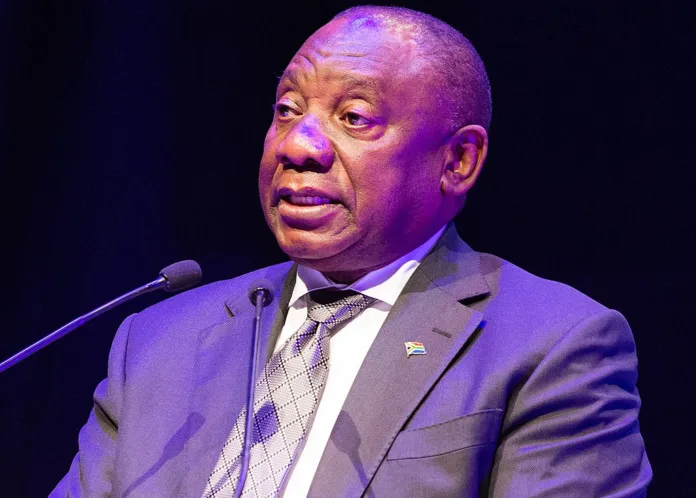Pressure mounts on President Cyril Ramaphosa to address Justice Minister Thembi Simelane’s controversial past and her involvement in the VBS scandal
Justice Minister Thembi Simelane faces mounting calls for resignation or dismissal from her role in the Government of National Unity (GNU) amid serious allegations stemming from her time as mayor of Polokwane. The controversy centres around her involvement with VBS Mutual Bank, whose collapse has triggered a criminal investigation.
During Simelane’s tenure as mayor, Polokwane’s municipality made illegal investments in VBS Mutual Bank, contravening laws that prohibit such actions. As the accounting officer for the municipality, Simelane bears responsibility for these investments. The case has drawn significant scrutiny, especially after the Hawks seized documents from the mayoral office in August 2024 as part of the ongoing probe.
Simelane now finds herself in a precarious position as the justice minister, overseeing the National Prosecuting Authority (NPA) while potentially being an accused or a witness in the VBS case. This conflict of interest is compounded by her role in the NPA, which requires the minister’s concurrence on all prosecution policies, raising concerns about the integrity of any investigations involving her.
Embed from Getty ImagesIn addition to the VBS issue, Simelane is also under the spotlight for a personal loan she took from Gundo Wealth, a company that was not registered as a lender. The details of this loan, including its exorbitant 47% interest rate and the timing of its repayment, remain obscure. Simelane has yet to produce the loan agreement and proof of repayment to Parliament, leading to suspicions that the loan could be a “kickback” or a conflict of interest.
Simelane’s situation raises serious legal and ethical questions. Section 96(2) of the South African Constitution mandates that ministers avoid conflicts of interest and not use their positions for personal gain. The Constitutional Court’s Nkandla judgment highlights the risks of such conflicts, emphasizing that even the appearance of a conflict can undermine public trust and governmental integrity.
Given the seriousness of these allegations and the potential impact on the NPA’s operations, calls for Simelane’s resignation or dismissal from her ministerial position are gaining traction. Critics argue that retaining Simelane in this role, especially with the added controversy surrounding her recent business dealings, could further erode public confidence in the justice system and the government’s commitment to tackling corruption.
Analysis:
Political:
The political implications of Simelane’s situation are significant. As a key figure in the GNU, her continued presence as justice minister could undermine the government’s credibility and its stance on corruption. The pressure on President Cyril Ramaphosa to take decisive action reflects broader concerns about the ANC’s handling of corruption within its ranks. The decision to retain or dismiss Simelane will likely influence public perception of the government’s commitment to transparency and accountability.
Social:
Simelane’s case resonates with ongoing societal debates about the effectiveness of government institutions in addressing corruption. The public’s reaction to her situation highlights a growing impatience with perceived impunity among politicians. The controversy also underscores the need for stronger mechanisms to ensure that public officials adhere to ethical standards and are held accountable for their actions.
Racial:
While the issue is not directly racial, the broader context of corruption in South Africa often intersects with racial and socioeconomic dynamics. Communities historically marginalized or economically disadvantaged may view such scandals as indicative of a broader pattern of injustice and inequality. The handling of Simelane’s case could influence perceptions of fairness and the effectiveness of anti-corruption measures across different demographics.
Gender:
Simelane’s predicament also intersects with gender dynamics, particularly regarding the scrutiny and expectations placed on female politicians. Women in leadership roles often face heightened scrutiny, and any allegations or controversies involving them can attract significant attention. The reaction to Simelane’s case could reflect broader societal attitudes towards women in positions of power and their perceived accountability.
Economic:
Economically, the controversy surrounding Simelane could impact public trust in financial and governmental institutions. The VBS scandal, coupled with Simelane’s alleged financial irregularities, may lead to increased scrutiny of financial practices and regulations. The outcome of this situation could influence investor confidence and the perceived stability of South Africa’s economic governance.
